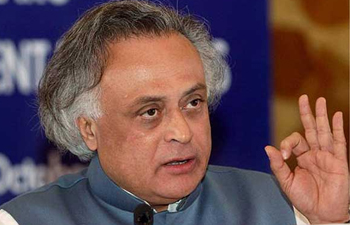 New Delhi, Jun 11: Accusing ruling BJP of having "reaped benefits" of communal polarisation in the Lok Sabha elections, Congress today said the government should now focus on good governance and deliver on promises.
New Delhi, Jun 11: Accusing ruling BJP of having "reaped benefits" of communal polarisation in the Lok Sabha elections, Congress today said the government should now focus on good governance and deliver on promises.
Resuming the debate in Rajya Sabha on Motion of Thanks on President's Address, senior Congress leader Jairam Ramesh said there was a "deliberate" communal polarisation on the ground by the "party which is in power" and it did not win the elections just on the plank of development.
He hoped that after BJP "reaped benefits" of communal polarisation, the government will now "focus on good governance".
The former minister said he was disappointed that the President's address did not talk about the works being done by the previous UPA government in the past 10 years.
Ramesh claimed there were "momentous changes" during the 10-year UPA regime and 140 million people had "escaped trap of poverty".
"We (Congress) became victim of our own success," Ramesh said, adding a large number of programmes mentioned in the President address was continuation of UPA policies.
Ramesh wanted to know meaning of slogans like 'minimum government, maximum governance' and 'Ek Bharat, Shrestha Bharat (united India, best India)' and said he hoped 'minimum government' does not mean one-man government, one-office government.
Referring to Goods and Services Tax (GST), he said the bill could not be taken up by the previous government due to opposition of certain people who are now in government.
He, however, assured Congress party's support to the government is passing the GST Bill.





Comments
Add new comment